Caroline Leavitt's Blog, page 122
September 10, 2011
Samuel Park talks about how Reality TV Prepared Him to Become a Writer
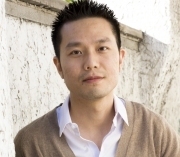
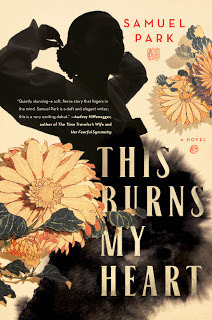
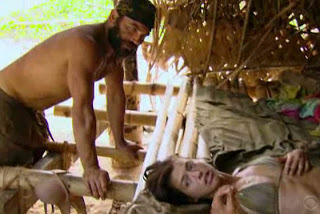
Let's start with how much I love Samuel Park's This Burns My Heart. And don't just take my word for it, it's an Amazon Best Book of the Month, an Indie Next List Pick and a Kirkus Reviews' Editor's Pick. Publishers Weekly went nuts for it, calling it a "dramatic, suck-you-in chronicle of finding a thrilling love affair." About the way the heart tricks, fights, saves and ruins us, it's just a gorgeous read.
Now let's talk about Park's love for reality TV. He's written this ferociously funny piece for the blog, and I'm honored to have it--and him--here. A zillion thanks, Mr. Park!
How Reality TV Prepared Me to Become a Writer
I have a love to confess, a love that dares not speak its name: a love for cheesy, competitive reality televison. I hugged Amazing Race before its Peabodies, yelled at The Apprentice through its Omarosa years, and learned to smize with Tyra in her Top Model show. Over the years, I inadvertently discovered some nice tips for writers from these fabulous contestants!
Survivor: "Personality Counts/Listen to the Room"The first person voted out of Survivor is always the most annoying one. The person who is bossy, demanding, difficult. Or just plain weird. Take season 21 in Nicaragua, for instance, when the tribe had to decide between voting out Jimmy Johnson and Wendy DeSmidt-Kohlhoff at the first tribal council. Wendy turned to be a big talker, the kind who is oblivious to the social cues from the people around her. Regardless of who was willing to listen, she just kept (nervously) talking and talking--attracting negative attention to herself. Publishing (as in a lot of the arts) is very much a social game, and an appealing personality goes a long way. Writers are constantly interacting with people—their agents, editors, publicists, magazine and newspaper writers, booksellers, readers. Being kind to others and attentive to their needs goes a long way toward establishing those relationships (and staying in the game!). Don't give people an excuse to want to get rid of you, or not respond to your emails.
The Apprentice: "Never Say No to Yourself"If you watch the Apprentice, you know that the Trump's worst pet peeve—worse than failing a task, worse than raising no money—is having a contestant who doesn't stick up for himself. Contestants who quit, who say "You should fire me." Trump treats those contestants like chopped kidney boiled in sewage water. According to the logic of the show, you have to go out with a fight. Likewise, as a writer, I'm a strong believer that one should never (psychologically, subconsciously, through self-doubt) offer yourself up as the one who gets kicked out of the writing game. There are enough people out there wanting to say No to you, that there's no point in you saying no to yourself. Honestly, I never say no to myself. I always say "Yes," as in, Yes, you should represent me. (Charming smile.) Yes, you should acquire my book. (Fingers crossed.) Yes, you should give me a blurb. Even if you're convinced that you've done a terrible job and you think deep down that Trump should fire you, don't say that. Don't fall on your own sword. Have the passion to believe in yourself and your work.
Amazing Race: "Follow the River Where It Takes You"The Amazing Race is kind of like the world's most complicated grocery errand, the Hitchcock in North by Northwest version of figuring out how to get from Point A to Point B. The contestants I find the most interesting are the ones who seem to forget that they're on a TV show. They're the ones who try to board a different flight than the others (and not the one already booked by the producers); or who overthink and forget that the clue boxes have to be in plain sight enough for all the teams to see it from afar. You see, the producers want the contestants to get from Point A to B, just not at the same time. They don't want anyone stuck, or left behind, so they've plotted out the paths ahead of time. Likewise, the most successful writers are the ones who trust the path laid out in front of them. I, for instance, made some mistakes early on by offering suggestions to my publicist that really did not make sense for my book. Eventually, I figured out to just trust the experts. The whole let's-try-this-instead approach can work wonders if you're a maven/genius, but for most of us mortals, it's a clue that you don't want the successful path that's been thought out and meticulously laid out for you by people who know better. Don't overthink; just enjoy the ride.
Project Runway: "Leave it Up to the Gods (or Michael Kors)"One of the reasons I think this show has been around for so long is, I suspect, because they almost always get the winner right. And there's something very reassuring about that. Over each season, people cry, struggle, worry, suffer (in TV as in life), but at the end of the day, what's supposed to happen, happens. The contestants work very hard, but at the end of the day, they have no control. As I mentioned in the previous item, which this one is kind of an extension of, it's up to the Gods (or Michael Kors and Nina Garcia). I think for writers, it's the same thing: we work very hard, down to every colon and semi colon, but at the end of the day it's in the hands of readers. I find the lack of control incredibly frustrating, but also enormously freeing. Not having control allows for surprises—you get reviewed in places you didn't expect to, you get sales from a demographic you hadn't thought about. Giving up control is hard to do, but ultimately, it allows for something to come into your life that's even better than what you were planning for.
Top Chef: "Luck Counts for a Lot"During Season 7 of Top Chef, Angelo Sosa looked like he was going to win. He'd been on a roll up to that point, winning the most individual Quick Fire challenges, and going toe to toe with his other competitors, Kevin Sbraga and Ed Cotton. It was anyone's game at the end. However, on the morning of the final competition, Angelo woke up with a bad, bad virus. He was so sick he was barely able to compete, delegating most of the cooking to his sous chef, Hung Huynh. In the end, Kevin Sbraga won. What if Angelo hadn't gotten sick that day? Likewise, what if your agent submits your manuscript, and the one editor who's likely to love it happens to be swamped, or having a terrible day? I have a friend who's a best selling novelist. He tells me that he used to think luck accounted for 30% of success as a writer (the other thirds being talent and hard work). Now, he thinks it's actually 70% luck.
The Bachelor: "Do It For Love"I actually don't watch this show, but it's the only one where love is involved, and I wanna end by talking about love. Back in my early 20s, before I had a serious relationship, I told a friend how much I envied her relationship with her husband, how she had someone to go out with to restaurants and parties and other events. They got to be looked at by other people, as a couple. She replied to me that relationships are actually not about the public space, but the private one—it's about being domestic with someone, at home. The other people don't really matter. I think it's the same with books. So much hoopla is spent talking about advances, royalties, book tours, sales rankings, and reviews. But at the end of the day, it's just you and your book—how you feel about it, and your feeling of accomplishment over it. Just as those reality contestants have to go back to their own lives when the shooting is done, writers have to return to their manuscripts after all the noise of publication. That's the real relationship, the real feeling of success. Only you know what it took to write it. Only you, in the end, really cares that it's there. After all else gets eliminated, it's what's left. You and your work—you and the thing that you love, the wondrous relationship you have with your craft. Speaking of which, I should go now. My next novel awaits, and so does the new season of Survivor!
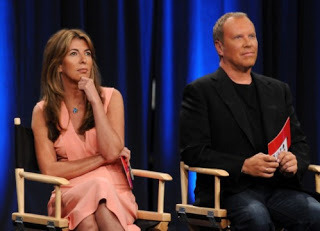
Published on September 10, 2011 13:54
Robin Stratton interviews herself for ON AIR
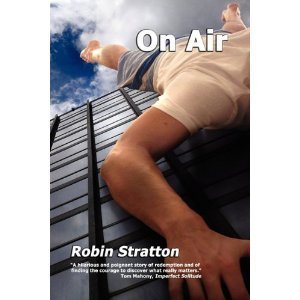
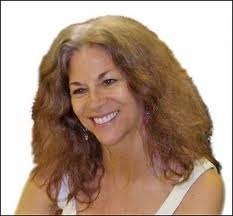
OK, I admit it. I am in chaos right now. Waiting to do revisions on Everything That Happens Today, throwing myself into a new novel tentatively titled Big Bad Love, and still cleaning up after Irene. But I want to still give my blog over to other writers, so many have been writing essays and interviewing themselves. All this means my head does not explode!
Robin Stratton is wonderful. She is a writing coach in the Boston area, director of The Newton Writers and Poets Center, editor of Boston Literary Magazine, and author of Dealing With Men, and The Revision Process: a Guide for Those Months or Years Between Your First Draft and Your Last. Her fiction has appeared in Word Riot, Poor Richard's Almanac(k), Antithesis Common, Chick Flicks, 63 Channels, Blink-Ink, Pig in a Poke, Up the Staircase, Shoots and Vines and many others.
Robin has kindly agreed to interview herself. Oh Robin, I thank you. My head thanks you!
Congratulations on your new book! So the first question, of course, is What is it about?
On Air is a pop-culture Coming-Of-Age story about a guy named Eric Storm who's fifty and coming to terms with his youth being gone... he's trying to figure out what the universe will give him in return. Part of that huge population of baby boomers whose life didn't turn out the way they planned.
I think a lot of people can relate to that!
I think so too. The thing about Eric is, he used to have it all – he was Boston's most popular DJ, he was rich, he had a beautiful wife and a fancy house. As On Air begins, he's divorced, on the brink of being fired, and has suddenly had to take over the role of caregiver for his aging mother.
The mother-son relationship is the whole basis for the book.
Right. The dynamics of this mother who has driven you crazy your whole life, and now she's old and sick and you know her time is limited... how do you prepare yourself to get along without her, especially now that the rest of your life has tanked?
Why did you decide to make him a DJ?
I thought that something to do with rock music was the best way to show that now he's on the far side of the generation gap. He used to be rebellious and passionate, and in the 70s and 80s DJs had a lot more freedom with their show, they could choose the songs they wanted to play. But in the year 2001 Eric has to accept that each morning he's given a corporate-approved list, and mostly they're songs he doesn't like. Commercial hits. For the first time his boss is younger than he is, but very grownup and responsible, and that makes Eric seem even more childish. I've had many people tell me they wanted to shake him – you see him acting like such a brat. But it's because his mother spoiled him and for the first half of his life he basically got whatever he wanted. Pretty rude awakening!
At first it wasn't clear why the story took place in 2001 (you have him mourning the defeat of Gore). Later, of course, the events of 9/11 come into the plot.
I began writing On Air in 2001 (while I was mourning the defeat of Al Gore) and one of the themes – that your whole life can turn upside down in just a short time – suddenly became true on a national scale after the attacks on 9/11. Like Eric, so many of us suddenly realized how good we'd had it... just the day before life was pretty good, you know? And now 3,000 Americans are dead, we no longer feel safe, and it really hits home that there are people in the world who hate us so much that they want to kill us: our children, our spouses, our parents. I watched the news all day, cried at the sight of every American flag, and wrote every night about each day's developments... my rawest emotions and reactions came out in Eric's thoughts and dialogue, including my fear that from now on maybe I wouldn't trust anyone from the middle east... the way our parents or grandparents learned to mistrust the Japanese after Pearl Harbor. I felt very conflicted and ashamed of those feelings.
And on top of all of this, Eric has to deal with this crush he has on a much much younger woman!
Recently I told someone who hadn't read the book about that part of the story and she just wrinkled up her nose, like, you know, Ugh, typical middle-aged man! But that wasn't my intention at all with that plot line – I just wanted to show how he's so desperate to cling to his youth that he falls for this woman because she reminds him of himself at that age... she's in her 20s... it's not her, it's this wish that he could go go back to those days.
I had to laugh at the way that part of the book played out at the end. I won't give it away, but I was really nervous for him! I wanted so much for him to do the right thing! I did too! I think the word for him is "hapless"!
So where can people buy On Air?
It's available at Amazon, or through the publisher, Blue Mustang Press, or at my website, www.robinstratton.com. If they go there they can read chapter one, and if they buy the book from me I would be happy to sign it!
Published on September 10, 2011 13:45
September 8, 2011
Valerie Frankel interviews herself and talks about It's Hard Not To Hate you
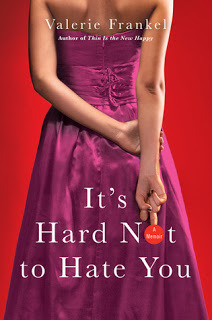
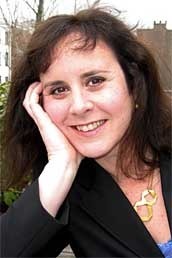
Valerie Frankel is one of the bravest, boldest, funniest writers on the planet. I loved her last book, Thin is the New Happy, and her new one, It's Hard Not To Hate You carries the same kind of startlingly fresh honesty (you can read my review in Shoptopia.com this month!). Every page feels as if you are sitting across a cafe with her, having coffee, and spilling your soul. I asked Val if she'd consider doing a self-interview for me here, and I'm honored that she agreed.
What made you decide to write a book on toxic emotions?
I was inspired to write It's Hard Not to Hate You in April 2009 while staring down simultaneous health and career crises. I was diagnosed with colon cancer, which led to the discovery of a genetic mutation that could cause cancers in numerous other organs. At the same time, due to the Great Recession, magazine assignments were hard to come by, and I was afraid for my livelihood. The double whammy of problems beyond my control was too much. My carefully maintained easy-going persona cracked under the pressure. Instead of trying to suppress my so-called toxic emotions, I decided to just let them come--in real life, and on the page. The hate in me just had to come out. I'd been wearing a poker face since I was a tweenage closeted rageaholic, so there was a lot of it.
How has opening the door to negative emotions changed you?
I had no idea just how happy being angry would make me. Women struggle to be perfect in so many ways--having a stellar career, being thin, a great cook, a skilled lover, a wise mother. We expect ourselves be emotionally perfect as well. I blame the positivity movement (The Secret, etc.), but it goes back farther to "sugar, spice and everything nice." Anything less that bursting with joy feels like a personal failure and public shame. Happiness, as opposed to Honesty, has become the ultimate emotional goal. The paradox is that you can't really be happy unless you're honest about how you really feel. This memoir's goal, of feeling whatever comes up without guilt or shame, was a humanizing process. As in, I let myself be human.
What kind of hate are you talking about?
So many kinds! Chapters address professional jealousy, envy of social butterflies' ease with maintaining so many friendships, raw impatience when dealing with rude people, disgust with overindulgent parents, anger at my husband, insecurity (aka, self hate) inspired by being repeatedly snubbed by a bitchy neighbor. One of my favorite chapters is called "The Enemies List" about nurturing old grudges—keeping them in a drawer, as it were—and how good it feels to air them out.
What advice would you give someone who doesn't want to own her negative emotions?
Some women are genuinely delighted by the successes of their peers, love their children's friends like their own, and smile patiently at slow service and bad manners. Such super humans do exist. I just don't happen to know any. If I ever meet one, I'd refer her to nearest army base for observation. The Feelings Police in our heads make us afraid to be angry. But sometimes, the only appropriate response is anger. To those grinding away at their happiness projects, I'd urge them to shed the Sally Sunshine skin. It'll feel GREAT. No one actually likes Sally, you know, she's sooooooo boring.
Published on September 08, 2011 10:11
September 6, 2011
Julianna Baggott on building your own MFA
Not sure if you want to get your MFA? Too expensive? Too time consuming or not sure it's worth it, but you still want writing help and mentorship? The sublime Julianna Baggott has a fantastic post about how to build your own MFA program working one on one with established writers--including me. This kind of focused attention can really jumpstart your career, keep you on schedule and teach you.
It's a brilliant blog post, and if you're interested in working with me one on one, shoot me an email at carleavitt@hotmail.com and I can explain more of the process to you!
It's a brilliant blog post, and if you're interested in working with me one on one, shoot me an email at carleavitt@hotmail.com and I can explain more of the process to you!
Published on September 06, 2011 12:29
August 31, 2011
Diana Abu-Jaber talks about Birds of Paradise
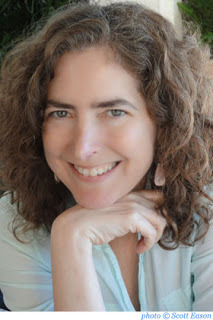
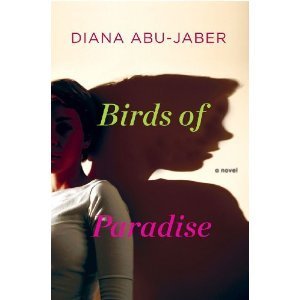 Diana Abu-Jaber's work is smart, moving, funny and brilliantly written, and she's also one of the warmest and most generous writers on the planet. She's the author of the award winning memoir, The Language of Baklava, the best-selling novels Origin andCrescent, which was awarded the 2004 PEN Center USA Award for Literary Fiction and the American Book Award. Her first novel Arabian Jazz won the 1994 Oregon Book Award and was a finalist for the PEN/Hemingway Award. A frequent contributor to NPR, she teaches at Portland State University.Birds of Paradise, about family, Miami, a runaway daughter, delectable baking, loss and longing, knocked me out. I'm so honored to have Diana here--and I want to mention that I reviewed this novel for Shoptopia.com, a review which will come out mid-September. Diana will be in NYC reading at the great McNally Jackson on October 10th. Thank you so much, Diana.
Diana Abu-Jaber's work is smart, moving, funny and brilliantly written, and she's also one of the warmest and most generous writers on the planet. She's the author of the award winning memoir, The Language of Baklava, the best-selling novels Origin andCrescent, which was awarded the 2004 PEN Center USA Award for Literary Fiction and the American Book Award. Her first novel Arabian Jazz won the 1994 Oregon Book Award and was a finalist for the PEN/Hemingway Award. A frequent contributor to NPR, she teaches at Portland State University.Birds of Paradise, about family, Miami, a runaway daughter, delectable baking, loss and longing, knocked me out. I'm so honored to have Diana here--and I want to mention that I reviewed this novel for Shoptopia.com, a review which will come out mid-September. Diana will be in NYC reading at the great McNally Jackson on October 10th. Thank you so much, Diana.I love the way Miami is so vivid in the pages—the lushness, the edge of danger—all captured perfectly. What made you decide to set the novel there?
The easiest answer is that we live most of the year in Miami. But of course then it gets more complicated-- there are all the tiny sensory details of this city that spilled into the book. There was the day when I was sitting in the back yard, eating croissants, reading Chekhov instead of writing, and noodling around watching the tiniest ants racing up the latticework of my orchids. Somehow these creatures led me to visualize a woman in a professional apron; her back was to me; I could see she had strong shoulders and I knew she had an iron will. The moment came, in some way, from the discreet sensual elements of that setting. There were several run-ins with several neighbors' pet tropical birds that became part of the plot point. And to me, thematically, Miami is the sense of secrecy, of hidden communities, the warrens of downtown, the crime scene, a uniquely manic real estate market, the vast, grotesque disparities between economic classes, the powerful environmental beauty....This is such a potent, stimulating place it's almost impossible to live here and not have it imprinted on one's work. At the same time, we'd only lived here for five years when I started writing the book, which gave me a bit of an edgy distance--useful for artistic perspective. At the same time, writing the novel became part of my own attempt to learn how to love this city.
A lot of times novelists have no idea where books come from, but I have to ask anyway. What idea sparked this novel?
I think one of the biggest inspirations for me was simple fear. My husband Scotty and I were finally talking about starting a family and I was thinking a lot about all the things that scared me about parenthood. We were both in our forties and I wanted to understand what had kept us away from the question for so long. At the same time, I'd been reading about runaways and human trafficking and all the ways that young girls get into trouble, and so the book eventually grew out of these parental nightmares and anxieties!
Birds of Paradise dips into the lives of a myriad group of characters without missing a beat, instantly involving us. Was this a structure you decided on right away, rather than giving it over to one distinct voice?
Thank you, Caroline-- I'm so glad to hear that. As I recall, I'd started the novel with only Avis, the mother's, perspective in mind. Years earlier, I'd written another novel from three perspectives that never really coalesced: I put years of hard labor into it but ended up shelving the manuscript in misery. So I was highly motivated not to try that approach again. Then I'd read several novels from multiple perspectives that I'd loved, like Claire Messud's The Emperor's Children, and Colum McCann's Let the Great World Spin, and I think that approach started to work its way into my imagination. One day, after I'd written most of the opening segment with Avis, I heard her daughter Felice's "voice" very clearly in my head (even though it's a third-person perspective) and I decided to take the plunge into shifting points of view.
I have to comment on the food details because my mouth was watering at the pastries and the organic food market! I bet research on that was fun, yes?
Absolutely! I grew up in a family of serious bakers: my Irish-German grandmother was sort of obsessed with baking and she'd turn her home into a bakery every year from Thanksgiving until New Year's Day. I inherited the sugar-fiend gene and there's not much I like better than giving over whole mornings, days, to baking. I love the meditation of it as well as the reward. Much of my actual research came from years of interviews and study I did when I was a food writer for the Oregonian newspaper. I wrote a restaurant news column and was particularly fascinated by the pastry chefs, how they often got second billing after the chefs and owners, but how many of them were actually sort of driven mad-geniuses. There was one pastry chef in particular who'd been recruited from Alain Ducasse who become notorious: he'd order insanely expensive ingredients, no matter how the owners would plead with him, and create such achingly beautiful creations that people almost couldn't bear to eat them. He got fired all over town and finally fled back home. Chefs like this-- their quixotic passions and obsessions--were great inspirations for Avis' character.
Felice , the daughter who ran away, was so sympathetic, despite some of her actions, and so achingly real, that I'd love it if you could talk about how you build character in your books.
It seems that, for me, building character is very much like building relationships in real life: there may be an initial spark, a beguiling trait, or moment of seduction, but there is also-- if I'm lucky-- a long, slow unveiling. In real life, we present public faces to each other and it takes time to peel away the layers, to learn about each other's history, past, motives, oddities. When writing characters, it's like the process of friendship runs in reverse: you slowly accumulate the details and history, layering them, stacking a series of transparencies, building their minds and bodies into three dimensions. I tell my students, you want to write characters that will cast shadows, characters that have breath and spirit.
I often take walks to think about my characters, what they want, what they will do next. Sometimes I talk them over with my husband or another writing friend. On occasion, I'll write about them in my journal, create a sort of shadow diary to follow the novel and help me to investigate the deeper currents. I often write brief, secret back-stories or free-write about the characters and their motives. At some point later in the process, I lean heavily on writing friends-- a group, if I'm in one-- to tell me what's missing, what's off, what's odd. And I shuffle back and forth, erasing, filing in, erasing, filling in. I try to be patient.
What's obsessing you now?
I've been at work on another food memoir, a sort of follow up to The Language of Baklava. When I set out, I'd thought it was going to be about trying to raise a good, multi-cultural, adventurous eater. But as I've gotten into it, I actually seem to be writing a book about negotiating the tensions between being a writer and a parent and a woman. I've been going back in time, retracing my first teaching job at the University of Nebraska, writing about old relationships and conjuring up madeleines and meals of times past. It's funny, but I find writing memoirs an intensely evocative, visceral experience-- as if some part of my mind literally reoccupies those old places and feelings. It's sometimes wonderful and sort of dizzying and often very hard to relive some of those old times-- sort of like being swamped by the past. At the same time, all at once I'm pulling out those old favorite cookbooks--the Moosewood; Chez Panisse; The Golden Palate; and I start wanting to make the things I cooked back in the 90's-- odd, passing fancies--a certain pretzel or stew or cake.
What question didn't I ask that I should have?
Your questions were wonderful! And if people would like to know more, I'd love it if they'd come visit my website www.dianaabujaber.com, or Twitter @dabujaber
Published on August 31, 2011 17:39
August 26, 2011
Books as works of art at Art Publishing Limited
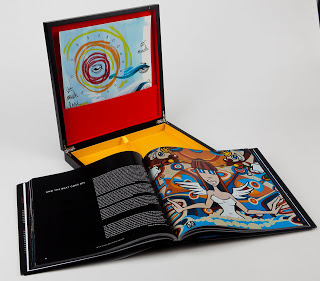
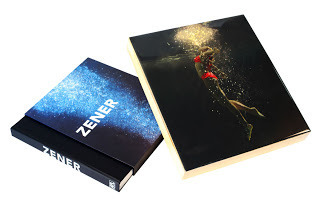 Who doesn't adore gorgeous books? Mia Rae Benenate is the editorial director of Art Publishing Limited, and the books they produce are breathtaking. I'm thrilled Mia is here to answer my questions. Thank you, Mia!
Who doesn't adore gorgeous books? Mia Rae Benenate is the editorial director of Art Publishing Limited, and the books they produce are breathtaking. I'm thrilled Mia is here to answer my questions. Thank you, Mia!
What is Art Publishing Limited?
APL is a venture financed publishing company that provides the ultimate experience in limited edition literary objects d'art. We believe in the power of art to ignite the imagination, stimulate thought, and provide entertainment. We strive to provoke thought in the arts community, and support the role of art in our society through our publications. Becky Benenate, formerly of New World Library, and I founded the company in 2009.
What sets APL apart from other niche publishers such as Taschen and Assouline?
What we create are literary objects d'art—the art is not an afterthought for us, it's the primary thought. We specialize in limited edition print runs, so each book is painstakingly put together to be a piece art itself. We've also carved out a name for ourselves, in addition to our limited editions, by creating limited artist editions as well, which come with original artwork by the artists our books feature. This element is something that our customers appreciate, as not everyone is at a point where they can invest tens of thousands of dollars on a piece of art. Our artist editions, which range from $500 to $2,500 make collecting art an approachable concept to a wider demographic of art lovers.
What are some available titles available?
Our first book, "Inspired By The Beat," was a collaboration between Art Publishing and LEBO, the artist who has rocked the nation, from his live performances with top musical acts with the Beastie Boys, Thievery Corporation, Willie Nelson and many others. This title was really fun to work on, because as a music lover, I was introduced to many new artists—especially Jazz musicians—through LEBO. It was also an incredible learning experience on the possibilities of manufacturing: we were able to produce a mahogany case inlaid with a silver LEBO medallion to house the book, and include an original watercolor. Traveling to Hong Kong and South Korea to visit the printing and manufacturing facilities was an amazing experience.
Our other title out to date, "Zener," is a large format, full-color, limited edition book featuring the current artwork (2000-2010) of prolific hyperrealist painter Eric Zener. A collection of over 150 beautifully reproduced images is accompanied by the writings of scholars, critics, fellow artists, poets, collectors and dealers – all of whom are accomplished in their own right in the art world. What was interesting about this book was that we were able to include an original resin piece by the artist in the deluxe artist edition.
They are available on our website http://www.artpublishingltd.com/new/, through Amazon.com and specialty boutiques.
What are you are working on now?
The most important project we're working on at the moment is a retrospective spanning the 30 year career of Blek le Rat, aka, Xavier Prou. Acknowledged by many as the "godfather" of stencil graffiti, Blek le Rat's work has influenced street art icons such as Banksy and Shepard Fairey—and has done so for generations.
At the conception of this project, I was introduced to street art and have since realized how important it is to the history of art as a whole. Street art has been quietly gaining momentum for years and is finally acquiring the notice of the mainstream with museum participation, such as LA's MOCA Street Art Show last year. Street art has become one of the most important art movements in history and I feel lucky to be a part of it in some small way.
Living in San Francisco, where APL is headquartered, I am also lucky to be in the middle of one of the epicenters of the street art movement, along with London and Los Angeles. We have a huge contingent of street artists here in this city with many organizations dedicated to covering and working with the artists such as the Arts Fund, so I've had the unique opportunity to become something of an amateur expert on the subject! At times, I feel that what my exposure to the inner circle, is a taste of what it must have been like to be a part of Warhol's Factory.
The Blek le Rat anniversary edition, titled "Blek le Rat," features the artist's private family photos, point and shoot images of his graffiti artwork from around the world, and full-color reproductions of his gallery pieces. The book is separated into two distinct sections: "Street Art" and "Fine Art," both of which are augmented by the writing of celebrated scholars, critics, fellow artists, journalists, collectors and gallerists. Lavishly illustrated with more than 150 images, "Blek le Rat," the 30 year anniversary retrospective offers the first full history of this seminal artist's tradition and legacy.
Blek le Rat sounds intriguing!
It's really interesting. . .Blek le Rat has never south the media attention as do other artists in his field—Banksy being a prime example. To an artist like Blek le Rat, it is the conversation between himself and other street artists, and passersby, that makes the art important. For him it is about the dialogue opened through his work and those that interact with it. He is, however, one of the most referenced artists by other artists, which legitimizes him in a way that the media and critics simply can't. When I was first introduced to Xavier and we discussed doing a large format limited edition book, I couldn't believe that such an incredible opportunity had fallen into my lap. Until 2000, Xavier had never had a public exhibition of his work and it was because he conscientiously objected, feeling that his art was a gift to people. It's an honor to be a part of the continued birthing of his public career.
You've piqued my interest, when will the Blek le Rat book be available?
A big part of our process is our involvement with the artists. We will debut the book at Art Basel | Miami Beach 2011, which is in December. Our booth will be set up in the Arts Fund tent at the W Hotel, South Beach and we will be selling copies of the book with Xavier on hand to sign and dedicate them. The book can also be pre-ordered now through our website: http://www.artpublishingltd.com/bleklerat.html
Where would you like to see APL in ten years?
In ten years this company will be recognized as an authority on contemporary art and a benchmark for taste. As an executive in the publishing industry, I'll do everything within my power to promote literature and I know that if we continue publishing on topics that are fashionable and have historical relevance, our goal will actualize organically.
Published on August 26, 2011 08:24
August 25, 2011
Marisel Vera talks about If I Bring You Roses and why being a Puerto Rican writer is really being an American writer
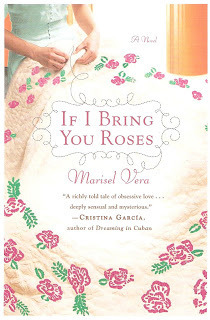
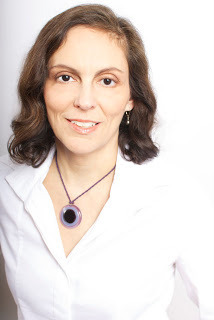
Marisel Vera's novel is a bittersweet love story, set in the 1950s and a haunting chronicle of Puerto Rican immigrants in Chicago. I loved the novel so much, I wanted to bring Marisel on my blog, and she graciously agreed to write something. Thank you so, so much, Marisel.
I Am A Puerto Rican Writer—Read: American Writer As the oldest daughter in a traditional Puerto Rican family, one of my chores was to iron my older brother's clothes. I did the worst job I could short of burning them, hoping my brother would tell my mother he would iron them instead (That never happened.). I snuck MS magazine into the apartment and stayed up late into the night sitting on the toilet and reading it in our only bathroom. I plotted to run away from home and show up on Gloria Steinem's doorstep and ask her to adopt me. I didn't do that, but I fought my own personal struggle of being a feminist in a culture where girls are raised to be subservient, first to their fathers and brothers, and later to their husbands. When I went to college, I did my best to hide that I was a Puerto Rican from Humboldt Park, a Chicago neighborhood where riots had recently shocked its citizens and the entire city. It put me on the defensive even when fellow students asked me ordinary questions. "Where are you from?" made me cringe. How to answer without bringing to mind the image of burning cars or that of a mother and small children leaving a demolished store with stolen goods in the middle of the night? Some people, especially adults, reevaluated their first impressions of me but, to my surprise, most people seemed unaware of the riots. At first, I was relieved. But then I was appalled that a number of Puerto Ricans from Humboldt Park had felt so oppressed and disenchanted that they had resorted to rioting and their suburban neighbors hadn't even noticed. This confirmed what the women's movement had already made clear to me, I lived in one world and everyone else lived in another. My cultural and family upbringing was part of me and while I embraced it, I didn't have a solid foundation of what being Puerto Rican meant because my parents were taught American history in school in Puerto Rico. Without that foundation, I couldn't help feeling inferior when people questioned my right to American citizenship or when I read or heard negative stories about Puerto Ricans. My extensive research about Puerto Rico and its history has also deepened my pride in my ancestry. Although by this time in my life I know who I am, it took my research for If I Bring You Roses for me to learn about the events that resulted in Puerto Ricans migrating to Chicago. A little knowledge of Puerto Rican history growing up would have given me some ammunition when kids taunted me to get back on the banana boat. Yet If I Bring You Roses is an American novel (as I am American) about Puerto Ricans (as I am Puerto Rican) who migrated to 1950s Chicago. It's a story about a marriage, about love and heartbreak, about immigration, about assimilation, about Puerto Rico. If I Bring You Roses is about America.
Published on August 25, 2011 09:06
August 15, 2011
Dayna Pink, costume designer for Crazy Stupid Love talks about telling a story through clothing and why bad taste is so much better than no taste
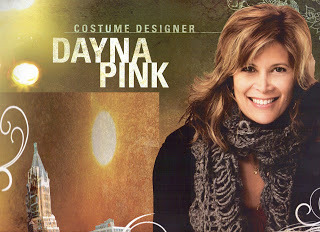
Right now, I'm starting a new novel, and so much of that is about character arcs. What makes a person the way he or she is? How does he or she change and how can I show that? I always keep photographs of what I think my characters look like pasted around my desk, right down to what kind of clothes they wear.
That's were Dayna Pink, the phenomenally gifted costume designer of Crazy Stupid Love, The Uninvited, Hot Tub Time Machine, and the upcoming The Lucky Ones comes in. I so loved Crazy Stupid Love, and part of it was the clothes. It wasn't just that I seriously coveted Julianne Moore's green dress, but I loved the way everyone's clothing also seemed to tell a story. Being an intrepid googler, I tracked Dayna down and asked her if I could talk to her. I had a seriously great time because Dayna's not only fascinating, she's also funny and whip smart, and I loved what she had to say about creativity and crafting a story. Thank you, thank you, Dayna.
So how do you do what you do?
I started as a stylist. I always loved clothes. I did a lot of bands, a lot of celebrities. I worked with Tenacious D and then I had an opportunity to do a film and I began to realize how different it was. When I was a stylist, my job was to make someone look good or cool or beautiful. That's not costume design. Costume design is about the story behind the person. Where are you from? Where did you travel? Did your grandmother give you that necklace? For example, in dressing the kid in Crazy Stupid Love, I asked, who is this kid? Is he popular? Does he have friends? It all plays a part in how he dresses. Kids don't have a huge wardrobe, and actually the actor was much hipper in real life than we made him!
When you read the script, you look for the character arc, the transformation. Sometimes it's subtle. A woman falls in love and she might dress more confidently or sexier. It's collaborative and I have a lot of conversations with directors, and actors. It all boils down to this fact: what we wear tells the story of who we are.
How long does the process take?
Depending on the film, eight or nine weeks. You have to research, make boards, figure out the whole direction.
What about you? How do you orchestrate your own wardrobe?
I live in L.A., which is pretty casual. I'm always shopping more for other people. I think because I'm involved in fashion, I'm interested, but I wouldn't say that I'm trendy. I'm still a jeans girl. I usually don't wear heels, but lately I'm obsessed by my Prada striped platforms.
Do you try to influence what your friends wear?
Oh no, I don't think that way at all! And actually, bad taste is so much better than no taste. That's what makes this world interesting, the differences, how people choose to present themselves in the world. If everyone was all wearing perfectly fit trousers with Prada, everyone would certainly look great, but it wouldn't be as interesting. It's like saying everyone should have plastic surgery and get these nice tiny noses. What's interesting about faces is always the character, not the perfect nose.
What's obsessing you these days?
When, I'm not on a movie, I really try to take care of myself. When you're on a movie, it gets really crazy and it can be really tiring. I also want to spend time nurturing my relationships with my girlfriends and my daughter, as well as doing yoga and learning something new. I feel better when I have a minute to care for myself and the people around me.
I know writers are always worried that they don't have another book in them, that the well will run dry. Is it that way for costume designers, even a highly successful one like you?
Everyone worries that they will never work again. It takes a certain type of person to work for him or herself, and to take that chance. When you're creative, you can't do anything else. You have to do what you are supposed to be doing, and if you can realize this, then part of the worry is gone. You just need to know that this is the path you've chosen. For me, the art is on the body, in clothing. That's my passion.
I really want to meet you so you can correct my wardrobe!
But I wouldn't!
Published on August 15, 2011 10:30
August 11, 2011
Welcome to a sort of match.com for writers looking for critique partners
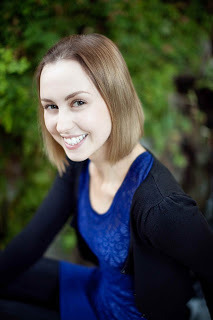
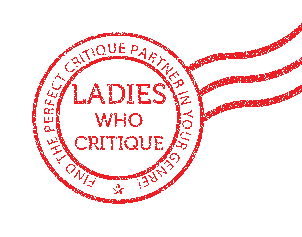
I would be lost without the other writers I use to read and tear apart...um I mean critique..my work. (I want them to tear it apart, by the way.) But I've learned that you need the right person reading your work: someone who doesn't try to turn your novel into his or her novel, someone who understands your strengths and weaknesses, someone who spurs you on to greatness. But not everyone gets lucky so easily. So where do you find critique partners?
Ladieswhocritique.com is a completely free site for women writers looking for the exact right partner to critique their work. The Brainchild of Laura Pepper Wu, this site lets you do a search for someone in your genre whom you might be critique-compatible with. So get motivated, stay on top of your writing and improve fast!
Published on August 11, 2011 12:38
Maddie Dawson talks about writing and surprises
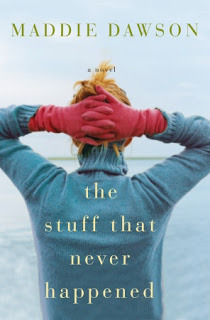

Maddie Dawson's The Stuff That Never Happened is a Target Emerging Writers book, and it's also wise, witty and very, very smart. I'm thrilled that Maddie is here on my blog to celebrate the paperback edition and to talk about writing. Thank you so much, Maddie! What's your writing life like?
Basically, I get up in the morning and over a cup of tea try to evaluate whether it's going to be a good "writing at home" day or whether I'm going to need to pack up the laptop and get to safety. A bad day for writing at home used to be one in which the phone rang incessantly or the children needed to be driven places. But these days it seems to be up to the hawk population of Guilford, Connecticut. I work on my screened porch, you see, overlooking the woods, where until recently it was cool and quiet, even a little boring. Then a couple of hawks made a nest in the willow tree by the porch, which I thought was lovely. Some company! But now they have invited all their cousins and BFFs and just about every hawk they know in the tri-state area, and all of them have taken to setting up housekeeping and making new families there. (The Guilford school system is known to be quite good.) Take it from me: hawks have noisy, messy family lives, and they sound like pterodactyls. Not only that, but they're also pretty keen on looking for food—and perhaps I'm getting paranoid, but I have noticed on a few occasions that if I'm sitting too still for a long time, several hawks have tried to throw themselves at the screen, perhaps to eat me.
So lately I can often be found writing at Starbucks, where it's true that there are lots of distracting human situations that can interfere with truly productive novel-writing—but at least no one is considering having me for lunch.
Have there been any big surprises since your novel, The Stuff That Never Happened, was published?
I always thought the best part of writing a novel would be the wonderful day that you get the very first copy to hold in your hands, but it turns out there is another thing that's even more fun, and even more long-lasting. It's that people start talking to you about your characters' lives—you know, as if the characters you thought up were real people, who exist in the world. Of course, I have always believed in them—Annabelle and Grant are sometimes more real to me than some of my family members, but I still was shocked when a woman came over to me at Starbucks one day, plunked the book down on the table in front of me, and then started to cry as she described all the ways Annabelle made the same mistakes she had made in her own life. I love this. Even when people don't agree with Annabelle (and let's face it, her decision to have an affair with her husband's mentor was a risky move), I have adored all the conversations this had led me to. I'll be standing in line at the bank when someone recognizes me and wants to yell at me for my apparent disregard for marriage vows. "I did not like the way she was willing to run off like that!" one woman said. I didn't have the heart to insist that, well, you know, she's not real, she's just a fictional character. Instead, I just nodded my head solemnly. "I know," I said. "She's very willful, just like a lot of people." The women stared at me for a few moments, and then said, "Well. I just hope you'll write a sequel and we can see if she learned a few things." Now what could be better than that? It's way better than holding a copy of a book in your hands.
When did you know that you were a writer?
I think I was born writing, if such a thing is possible. My mother tells me that when I was four years old, she and I were out planting flowers, when I suddenly said to her, "I hope you know this isn't how we did it in the Navy." Until then, she hadn't known about my Navy career—and since we didn't know anyone who actually was in the Navy, she wasn't exactly sure how I knew about my Navy career either. She felt it best to drop the subject. Then, when I was six, one day she refused to give me money for the ice cream man, so I marched inside the house and wrote a little book. I made a binding and drew pictures for it, and titled it "The King Who Slept for 3 Hours and 45 Seconds," a tragedy about a king who took a nap and missed his coronation. I took it door to door until a neighbor bought it for twenty cents—which in those days was enough for two banana popsicles. My mother was embarrassed about this and went and bought it back and told me never to do this again. But I remember thinking that this really could be a good career move for me. At least it could keep me in frozen desserts for the rest of my life. Since then, I've been good for very little else. I am non-mechanical, can't fix things, hate gardening—and although I can make a decent pie crust, I'm generally not in the mood to do it. I'd rather write than do almost anything, and although sometimes I envy my friends who have the kind of careers that don't have them staring off into space and mumbling all the time, I really do love what I do. Today I can be seen pacing and mumbling to myself as I write a new novel, and I'm lucky enough to lead writing workshops in my home, helping other people figure out the madness that is fiction-writing. It's so much fun helping others take apart their manuscripts and come to finished drafts. But it gets my fingers itchy to get back to my own work.
Is The Stuff That Never Happened your first novel?
No. I am the author of three other novels and three books of humorous non-fiction about parenting, published under the name of Sandi Kahn Shelton. Maddie Dawson is actually a pseudonym, chosen specifically for this book, because my other novels (What Comes After Crazy, A Piece of Normal, and Kissing Games of the World) are all novels with young protagonists, and fell more into the genre of "chick lit," stories about 30-somethings falling in love and finding where they belong in the world. When I was writing The Stuff That Never Happened, I decided to use a pseudonym since it's a book about a woman approaching 50 and taking a hard look at her life and deciding whether she wants to stay in a marriage that may be heading off the rails, or whether she wants to go back to a man she once loved. What I've discovered is that it doesn't matter what name is on the cover—I love writing and connecting with readers and other authors, and these days that's mostly how I spend my time. I have to say, it's also a little bit fun, even though exhausting, to be two people. Some days there's barely enough of me to be even one person. That being said, I believe it's Maddie who's working on "our" new novel: the story of a 40-something woman who discovers she's pregnant for the first time just as she's separating from the man she's loved for 15 years.
What's the best thing about being a writer?
Well, it's probably not the financial rewards or the fame and glory. And maybe not even the peaceful, sleep-eight-hours nights. (I often dream the plots of my books and find myself needing to get up and write stuff.) And it's definitely not the sanity it brings: writers (and me among them) tend to be obsessive-compulsive worriers who are gifted at dreaming up problems, both in fiction and real life. We're also constantly walking around with little pieces of napkins and paper bags and post-it notes, upon which plot points and character traits are written in a kind of shorthand that defies logic. I have one currently that says: "Soapie yoga bloody Marys," which I know means something important. Wow, what are the good parts? I'm trying to remember if there are any. Oh, yes! Yes, of course there are! For one thing, you get to have more than one life, to play God just a little bit. You can invent people and then march them through situations and watch how they handle everything. One of my favorite quotes about writing is from Lee Smith, the author of Fair and Tender Ladies and Oral History, who says, "When stuff in life gets really rough, I would just die if I was not writing a novel. Once you think it up, it's like a whole other city with a little door, and every time you sit down to write you just open the door and there you are—a wonderful vacation for two hours."
Published on August 11, 2011 08:24



